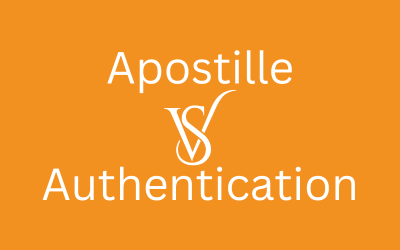Whether you want to purchase property to rent out on Airbnb or you want to lease office space, it’s important to understand that how you structure the property purchase affects your liability and your taxes.
To be clear, we are not talking about merely renting out your home or a room in your house for a short timeframe. According to the IRS, rental income from a short-term period is tax-free as long as the room or house you rent out is rented for 14 days or less. If you receive rental income for more than 14 days per year, you are required to pay taxes on the rental income. Yes, you can deduct some expenses related to the rental, but you must be careful not to let any personal expenses cross over.
Because there are liability issues involved in rental properties and better tax benefits for business owners (rather than just investors), most rental property owners choose to set up a separate business entity.
Purchasing Property as an LLC
Many people buy a rental property as a Limited Liability Company (LLC) for the same reasons they start a business as an LLC. An LLC offers liability protection and tax benefits.
An LLC is a business structure formed under specific state statutes and is a separate legal entity from its owners (referred to as members). An LLC is formed as either a single-member LLC or a multi-member LLC and can be member-managed or manager-managed. As a formal business structure, an LLC is the simplest to form and maintain.
Because the LLC is a separate business entity with its own assets, income, and losses, it can purchase real estate (whether residential or business) and obtain its own bank loan for the purchase. The LLC earns income by leasing or renting the property.
As a formal business, the LLC is expected to document its processes in articles of organization or an LLC operating agreement. The operating agreement should include how members can lend money to the LLC for the purpose of purchasing property, what happens to the property if one or more members leave, if the LLC disbands altogether, or if the LLC is sued.
The biggest reason to form an LLC is to protect your personal assets. If someone gets hurt on your property or finds another reason to take you to court, your personal assets are not liable.
The other advantage of forming an LLC is the tax advantage. An LLC with one owner/member is classified by default as a disregarded entity and is therefore taxed like a Sole Proprietorship. So, the single-member LLC still enjoys liability protection but also benefits from all rental income and capital gains being passed through to the owner/member. This pass-through income allows the LLC to avoid paying taxes. LLCs with more than one member are generally taxed like Partnerships. In this scenario, the LLC does not pay taxes, and income and losses are passed through to the members.
One drawback that may or may not make a difference is the higher interest rates on mortgages when the purchaser does not plan on occupying the building. However, the income from a rental property might make a higher interest rate worth it.
The 1031 Exchange
A disadvantage to setting up an LLC to purchase rental property is the complications arising when the LLC decides to sell a property. Whenever you as an individual (or as a business) sell the property for a gain, you are required to pay capital gain taxes at the time of the sale. However, the IRS allows for a postponement of the tax if you purchase another property for more than the gain.
IRC Section 1031, more commonly known as the 1031 exchange, allows you to defer paying taxes on the gains because you are actually reinvesting and not selling outright. You have 45 days to officially identify the new property and 180 days to close.
For example, let’s assume you sell a rental property for $500,000 and that you still owed $100,000 on the mortgage. You “exchange” the property for one costing $1.2 million, use the $400,000 in cash from the sale and acquire a new $800,000 mortgage loan. You have satisfied the exchange requirements for 1031 and you defer taxes on the sale. You can also do a partial 1031 exchange. If you buy a property for a lesser amount than your original property, you simply pay taxes on the difference.
The difficulty comes if not all members of the LLC agree to sell the property or if one member wants to sell and the others don’t. If an agreement can’t be made one way or another, either the dissenting member would have to transfer his stake to an existing member, or the LLC would need to dissolve and reform.
Purchasing Property as an S Corporation
Like an LLC, an S Corporation can either be solely owned or have multiple owners. Unlike an LLC, an S Corporation can sell shares, but there are some restrictions.
To qualify for S Corporation status, a business:
- Must be filed as a U.S. corporation
- Can maintain only one class of stock
- Is limited to 100 shareholders or less
- Shareholders must be individuals, estates, or certain qualified trusts
- Each shareholder must consent in writing to the S Corporation election
- Each shareholder must be a U.S. Citizen or permanent resident alien with a valid U.S. Social Security number
- Must have a tax year ending on December 31
As long as the shareholders approve, there are no restrictions on purchasing property for rental purposes. There are restrictions on the income derived from the property, though.
The S Corporation is taxed as a pass-through entity and profits and losses pass through to its shareholders. When it comes to passive income received by an S Corporation, however, that’s where difficulties can arise. According to Section 469(c) of the tax code, passive income is derived from “any activity which involves the conduct of any trade or business, and in which the taxpayer does not materially participate.” Under that definition, collecting rent is considered passive income and if more than 25 percent of an S Corporation’s income is considered passive, that income can be taxed at corporate rates. In addition, if the S Corporation does not reduce the amount of passive income, the IRS can terminate the S Corporation’s special tax status.
Plus, any gains procured from the sale of a rental property will also be passed on to the shareholders and the shareholders will owe capital gains taxes. If the S Corporation wants to do a 1031 exchange, the transaction must still be reported on the shareholders’ individual tax returns.

Choosing a business structure can be a tough decision for the new business owner. CorpNet wants to make the process easier.
This free, online tool helps small business owners navigate the process of picking the right business structure for their new business.





